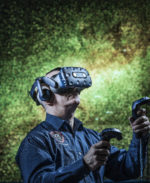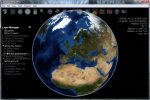Coders, developers and programmers often get the stigma of being thought of as nerds or geeks sitting behind their computers all day writing software, but those non-superheroes may be the only people capable of saving the planet and the human race.
NASA is looking for coders and citizen scientists to blast asteroids away from Earth. The space agency announced an Asteroid Data Hunter contest series that is looking for people to develop improved algorithms that can detect, track, characterize and mitigate asteroids.
“Protecting the planet from the threat of asteroid impact means first knowing where they are,” said Jenn Gustetic, prizes and challenges program executive at NASA. “By opening up the search for asteroids, we are harnessing the potential of innovators and makers and citizen scientists everywhere to help solve this global challenge.”
Currently, only 1% of estimated objects that orbit the Sun are being tracked by asteroid detection initiatives, according to Chris Lewicki, president and chief engineer of Planetary Resources, an asteroid mining company that has partnered with NASA to conduct the contest.
“Applying distributed algorithm and coding skills to the extensive NASA-funded Catalina Sky Survey data set will yield important insights into the state of the art in detecting asteroids,” he said.
By developing algorithms and software for asteroids, participants will not only be preventing possible extinction, but also developing the future of raw materials. Asteroids contain iron, nickel, water and rare platinum group metals that often have a much higher concentration than found on Earth, according to Planetary Resources. Asteroid mining could lead to an economically and environmentally sustainable development of space resources.
Coders could have a potential future in asteroid mining, as long as they help protect the future of Earth.
The contest series will kick off on March 17 and run through August. A total of US$35,000 in prizes will be awarded. The contest will be managed and executed by NASA’s Center of Excellence for Collaborative Innovation.
More information about the contest is available here.






